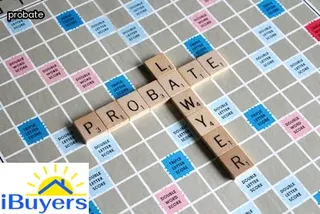The role of an executor of an estate is a crucial one, as they are responsible for administering the estate when the owner passes away. This involves gathering all assets, paying debts and taxes, and distributing the remaining assets according to the deceased's wishes.
An executor must also file any necessary legal paperwork with the courts, such as probate documents. To become an estate administrator in Ohio, it is essential to understand the duties associated with this role and be aware of state laws that govern it.
It is important to have a good understanding of financial matters, as well as how to manage and distribute assets appropriately. Additionally, it is important to be able to communicate effectively with beneficiaries and other parties involved in the process.

In Ohio, the Probate Court generally appoints an estate administrator when the deceased does not leave a will or nominate an executor.
During the appointment process, the court considers the preferences of family members who are interested in serving in this role as well as other factors such as potential conflicts of interest and qualifications for administering the estate.
Each county may also have additional requirements that must be met before someone can become an estate administrator, so it is important to research local probate laws and processes beforehand.
Furthermore, if no one is appointed by the court, then a personal representative may be appointed to manage the decedent's property until their debts have been paid and any remaining assets have been distributed among the rightful heirs.
In Ohio, any individual wishing to take on the role of an Estate Administrator must first obtain a bond. The purpose of this bond is to ensure that the executor will remain faithful to their duty and not attempt to misappropriate any funds from the estate or its beneficiaries.
To obtain a bond, applicants must fill out an application form and pay a fee as well as provide proof of financial responsibility. Additionally, an investigation will be conducted into the applicant's background in order to determine their suitability for the role.
Once all requirements are met, the estate administrator-designee will receive a certificate of authorization from the court and be appointed by the probate judge. It is important to note that some counties may have additional requirements beyond those outlined here so it is essential that anyone wishing to pursue this position check with their local probate court before beginning any process.

It is possible for a non-Ohio resident to serve as an executor in Ohio. To do so, the individual must first become an Estate Administrator.
This process requires someone to be knowledgeable of Ohio state laws and have a valid license issued by the state. The potential estate administrator must also be at least 18 years of age and able to provide proof of residency in the state.
Furthermore, an applicant will need to pass a criminal background check, submit proof of financial responsibility, and submit a completed application. Once approved by the court or probate judge, the individual can then begin the process of becoming an appointed executor.
They will need to complete all necessary paperwork, supply assets and information regarding any debts or liabilities related to the estate, and establish their duties as executor with regards to managing assets throughout probate proceedings.
In Ohio, executors are compensated based on a statutory fee schedule and the size of the estate. The fee schedule is determined by the state legislature and is calculated as a percentage of the gross value of assets in the estate.
Executors may be entitled to a minimum fee for certain services regardless of the size of the estate. For example, executors may receive at least $1,000 for providing an inventory of assets, filing tax returns, paying debts and distributing assets according to the will or other applicable law.
For estates worth more than $100,000, executors are entitled to 3% of the first $100,000 plus 1.5% of any remaining balance over $100,000.
If an administrator has been appointed by the court due to no will being in place or if there is disagreement about who should serve as executor then they are entitled to 4% of any value up to $1 million and 2% of any amount above that. An attorney can also provide advice regarding specific compensation issues related to serving as an estate administrator in Ohio.

The Ohio probate process is a legal procedure that involves validating the will of a deceased person, appointing an executor or administrator to handle their estate, and distributing assets to any beneficiaries. In order to become an estate administrator in Ohio, one must first understand the process and then take certain steps.
First, notice must be given to all interested parties via a ‘notice of probate’. This notice outlines the name of the decedent and his/her last known address.
The next step is for the representative of the estate to gather all assets owned by the decedent and pay any debts or taxes due from these assets. Thereafter, an inventory must be taken and filed with the court.
The court then determines who is entitled to receive assets from the estate. An accountant may be appointed to help with this process if necessary.
Lastly, once all assets have been distributed according to law, a final report must be filed with the court before closing out the estate. Although it can seem daunting at first, understanding each step of this process can help individuals become successful administrators of estates in Ohio.
In Ohio, estate administration is the process of organizing and managing a deceased person’s assets. This could include anything from legal documents to physical property.
It’s important to have an experienced estate administrator that understands Ohio law to help guide the process. The first step in becoming an estate administrator in Ohio is to obtain a license from the state.
Applicants must meet certain criteria such as demonstrating a knowledge of probate law, completing continuing education requirements, and passing a criminal background check. Once licensed, Ohio's executor or administrator will be responsible for notifying creditors, filing taxes, gathering assets and distributing them as directed by the will or court order.
In addition, they must also identify any heirs and handle any disputes that may arise during the process. Estate administrators in Ohio should also be knowledgeable about financial matters such as investments and asset management so they can ensure that assets are managed properly throughout the process.
As an estate administrator you will be expected to maintain records of all transactions and provide regular updates on the progress of the estate administration procedure in Ohio.

An Estate Administrator in Ohio is responsible for many important duties and tasks. These include collecting assets, paying debts, filing tax returns, settling disputes, distributing assets to heirs, and providing accountings to the court.
Additionally, they must file petitions with the court to open probate proceedings and handle requests from beneficiaries. They must also maintain records of all activity related to the estate administration process.
All these responsibilities require an individual to be organized, detail-oriented, and have excellent communication skills in order to successfully navigate the process of administering an estate in Ohio.
When there is no will, someone must be appointed to take on the role of personal representative and manage the estate. This person is responsible for collecting and managing the assets of the deceased, as well as paying any outstanding debts and taxes.
In Ohio, if there is no will, state law determines who will become the personal representative. Typically, this would be a close relative such as a spouse, child or sibling.
However, if those relationships are not present or feasible, an unrelated individual may be appointed by the court. It is important to note that anyone chosen to act as personal representative must meet certain legal requirements in order to be qualified.
They must also take an oath of office before they can begin their duties on behalf of the estate.

Establishing a fiduciary account in Ohio is an important step for those looking to become an estate administrator. Although the process may seem daunting, it can be done with the correct guidance.
To establish a fiduciary account, you must first start by filing a "Fiduciary Account Establishment Form" with the court. Once this form is filed, you will need to obtain surety bonds and provide proof of identity and age (18 or older).
You will also need to provide additional documentation such as a copy of the death certificate and any documents related to the administration of the estate. Once all of these steps are completed, you will be able to open your fiduciary account in Ohio and begin fulfilling your duties as an estate administrator.
Probate court proceedings can be complex and filled with unfamiliar terminology. To become an estate administrator in Ohio, it is important to understand the common terms used in the probate process.
The executor of a will is the person designated by the deceased to manage their estate and any assets. The Letters of Administration are documents issued by the probate court that grant authority to the executor or personal representative.
The personal representative is appointed by the court when there is no will or if one was not made valid under state law. Creditors have a period of time after death to file claims against an estate for unpaid debts.
Heirs are those entitled to receive distributions from an estate, typically determined by state law if there is no will. A distribution schedule outlines how assets are divided between heirs according to state law or a will’s instructions, while distributions are payments made from an estate to creditors or heirs.
A bond protects an estate from mismanagement; administrators may be required to obtain one depending on state laws and circumstances surrounding the estate. Understanding these terms can help aspiring administrators navigate the complex probate process and ensure they meet all legal requirements for administering an estate in Ohio.

For those who wish to become an Estate Administrator in Ohio, navigating the probate process can be a daunting task. One of the most important steps during this process is handling creditor claims.
As the Estate Administrator, it is your responsibility to ensure that any debts owed by the deceased are paid in full. This could include medical bills, mortgages, or credit card debt.
To do this successfully and legally, you must work with both creditors and other parties involved in the probate proceedings to assess each claim and determine how much is owed and how it should be paid. You may also be required to provide documentation such as insurance policies or bank statements which prove all debts have been settled according to Ohio state law.
Handling creditor claims properly is essential for a successful administration of an estate, so it’s important to understand each step of the process before taking on this role.
Once probate has been successfully completed and all creditors have been paid, the property will need to be distributed according to the instructions detailed in the deceased's last will and testament. It is up to the estate administrator or executor to ensure that these instructions are followed and that assets are distributed accordingly.
This may involve transferring assets such as real estate, stocks, bonds, bank accounts, vehicles, jewelry, and other tangible items. Additionally, it is important for an estate administrator to understand any tax implications associated with asset transfers in order to ensure compliance with applicable regulations.
If a dispute arises over how assets should be distributed or if any heirs contest a will’s validity, it is important for the estate administrator to seek legal counsel and guidance from an experienced Ohio attorney who can help resolve any issues. Finally, the estate administrator must keep accurate records of all transactions associated with asset distribution in order to satisfy state requirements and provide proof of rightful inheritance should it be needed.

In order to become an Estate Administrator in Ohio, you must obtain Letters Testamentary and Letters of Administration. To acquire this document, the court will require a Petition for Grant of Letters Testamentary or Petition for Grant of Letters of Administration, which must include the deceased's name and date of death, a full inventory of assets, and the names and addresses of all known heirs.
The petition must be filed with the Probate Court in the county where the decedent had their permanent residence. After filing your petition with the court, you will be required to submit notice to all interested parties who have a legal interest in the estate.
Once all interested parties have been notified, a hearing will be scheduled for the Court to approve or deny your request for Letters Testamentary or Letters of Administration. Upon approval by the Court, you will receive your requested documents and may begin working as an Estate Administrator in Ohio.
Estimating expenses and fees for estate administration services is an important part of the process of becoming an estate administrator in Ohio. This includes understanding court supervision over administering of an estate, as well as resolving disputes between beneficiaries of an estate.
Working with a probate or estate attorney in Ohio can provide valuable insight into best practices when it comes to keeping track of assets during the administration process. To gain knowledge about probate and estate administration in Ohio, there are many helpful resources available online, such as blogs, books and legal databases.
It's important to do research to make sure you're staying up-to-date on the latest laws and regulations surrounding probate and estate administration. Additionally, consulting with experienced professionals can help ensure that your responsibilities are being handled properly.
Becoming an administrator of an estate in Ohio can be a lengthy process, but with some dedication and hard work, it is possible to become qualified in a reasonable amount of time. In order to become an estate administrator in Ohio, you must complete certain educational requirements and successfully pass the Ohio Bar Exam.
The educational requirements include completing a four-year bachelor's degree program in law or a related field and then attending law school for an additional two or three years. After completing your education, you must also pass the Ohio Bar Exam before being allowed to practice as an estate administrator in the state.
Depending on how much time you are able to dedicate to studying for the exam and how quickly you can complete your education, it may take up to seven years before becoming fully qualified as an estate administrator in Ohio. Although this may seem like a long period of time, having the knowledge and credentials necessary for such a job will be worth it in the end.

Becoming an administrator of an estate without a will in Ohio is not as difficult as it may seem. The Ohio state laws governing probate and estate administration are intended to make the process simpler for those without a will.
To become an administrator, interested parties must first file a Petition for Estate Administration with the Probate Court in the county in which the decedent resided at their time of death. After filing, applicants must provide supporting evidence such as a death certificate to prove their legitimacy.
Upon approval from the court, the individual becomes an estate administrator and can begin to manage the affairs of the deceased person’s estate. Depending on the size and complexity of the estate, this may include inventorying assets, making payments to creditors, settling debts or taxes with any remaining funds, and distributing assets among heirs or beneficiaries.
Estates without wills can be complicated matters; however, by filing proper paperwork and following court orders closely, one can easily become an administrator in Ohio.
In Ohio, the median salary for an Estate Administrator is $76,917. Salaries vary based on experience, location, and qualifications.
Estate administrators usually start out making around $39,000 annually and can work their way up to make as much as $103,000 depending on the size of the estate they are managing. Those with a higher degree or advanced certification may be able to make more than this average amount.
There are also opportunities for bonuses and other incentives that can further increase earning potential. For those looking to break into the field of estate administration in Ohio, there are numerous opportunities available and a variety of pathways to follow in order to become successful in this field.
In Ohio, executors and administrators are similar in that they are both responsible for managing the estate of a deceased person. However, an executor is appointed by the deceased individual while an administrator is appointed by a court.
An executor is typically named in a will whereas an administrator is typically appointed when there is no will or if the deceased individual failed to name an executor in their will. Executors are usually family members or close friends of the deceased individual who have been entrusted with carrying out their wishes.
Administrators may be family members or strangers chosen by the court to oversee the estate and distribute assets according to Ohio law. Ultimately, both roles involve managing the estate of a deceased person but executors are selected by the decedent and administrators are chosen through legal proceedings.